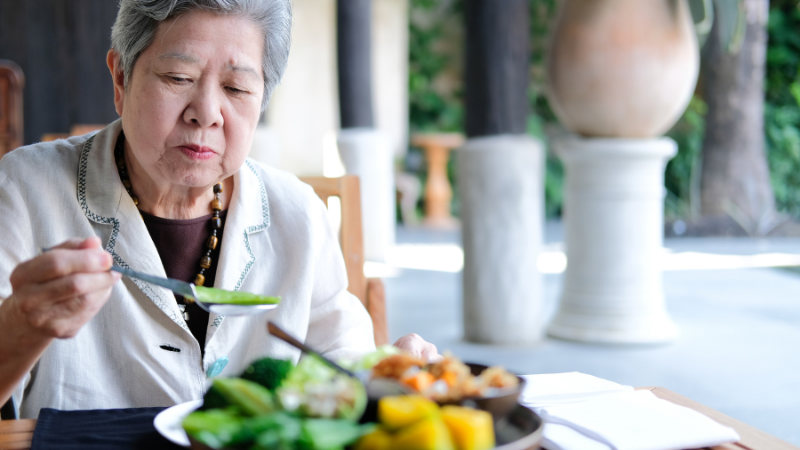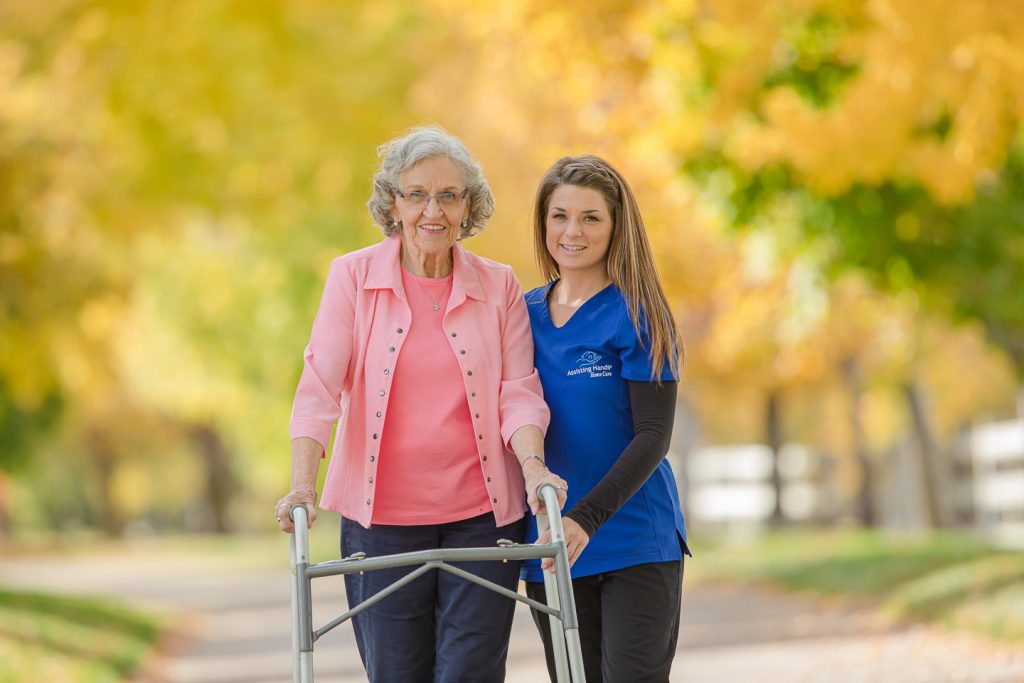
As we age, our bodies become more susceptible to getting sick. One way people can get sick is from food-borne illnesses. For seniors, this illness can lead to serious complications and even death, therefore it is important to take precautions to prevent food-borne illnesses, especially for those 65 years of age and older.
Why is it easier for seniors to get sick from foodborne illnesses?
It is much easier for seniors to get sick from foodborne illnesses because of the various body functions that may have slowed down as they age, or due to an underlying illness that makes their body not process food properly.
Here are a few reasons seniors may get sick easier due to a foodborne illness:
- Underlying conditions such as cancer or diabetes
- Weakened immune system
- The gastrointestinal system keeps the food in their system longer, allowing for bacteria to develop
- Not having enough stomach acid allows bacteria to form and cause illness
What can seniors and their caretakers do to prevent foodborne illnesses?
- All surfaces, hands, and utensils should be washed properly and often. This includes heavily used surfaces such as cutting boards and counters as it helps prevent contamination.
- All raw meats, poultry, and eggs should always be kept separate. There should be separate cutting boards for fruits and vegetables, raw meat, and poultry to avoid cross-contamination.
- All food should be cooked at the proper temperature meant for that item.
- The refrigerator should be kept at 40°F or below and the freezer at 0°F or below.
- Frozen food should be thawed in the refrigerator and not at room temperature. When thawing, the item should be placed in a container to prevent juices and bacteria from spreading to other food. Food can also be thawed in the microwave and cooked immediately.
- All perishable food needs to be refrigerated within two hours. If exposed to high temperatures (90 Fahrenheit) then it should be refrigerated within one hour.
- Leftovers should not be kept for more than two to three days even if they still look and smell good.
- Leftovers from restaurants should be refrigerated within two hours of being served to avoid illness.
- Make sure to rinse and wash all fruits and vegetables. Raw meat does not need to be washed as that can spread bacteria.
According to the Academy of Nutrition and Dietetics, here are some foods seniors should avoid to help prevent the chance of getting a foodborne illness:
- Foods that are raw or undercooked such as meats, poultry, or fish (raw or refrigerated smoked seafood unless it is cooked in a dish)
- Unpasteurized dairy products (raw milk or cheese) and some soft cheeses (Brie, Camembert, etc.)
- Raw or undercooked eggs and foods that contain undercooked eggs
- Raw sprouts
- Deli salads
- Unpasteurized fruit and vegetable juices
- Refrigerated pâté or meat spreads
Want to learn more about nutrition in older adults? Check out our blog post about Beneficial Vitamins for Seniors
What can you do if a senior gets sick from a foodborne illness?
Even when you take all the precautions to avoid foodborne illness, it can still happen. As a caretaker, if you notice that a senior has signs of a foodborne illness, you should take them to the doctor right away.
Here are a few things you can expect if you think the senior has a foodborne illness:
- Be on the lookout for signs of foodborne illness: vomiting, diarrhea, fever, abdominal pain, nausea etc. If you notice these symptoms, you should react right away and take the senior to a doctor. This will prevent possible dehydration and serious hospitalization.
- If the senior or caretaker can identify what made them sick, they should wrap it, label it, and freeze it for testing. Any packaging that the food comes in should be kept to help the doctors identify the cause of the illness. Any contaminated food should be reported to the USDA Meat and Poultry Hotline at (888) 674-6854.
- The senior and the caretaker should be ready to answer the doctor’s questions about their illness. This includes knowing when the symptoms started and when they ate the contaminated food. Usually, the doctor will request laboratory tests, bloodwork, and cultures to help them diagnose the issue.
- Once the senior has received treatment and medications from the doctor, it is crucial to ensure that they finish them as prescribed to make sure the infection does not come back.
Foodborne illness in seniors is a serious matter and should be treated as such. Always make sure that the senior or you as the caretaker take the necessary precautions to avoid this illness as it can have serious consequences.

Are you or a loved one in need of non-medical home health care? At Assisting Hands, we help seniors and adults with disabilities to age safely in their homes.
We offer personalized non-medical in-home care services in Homer Glen, Tinley Park, Oak Lawn | Evergreen Park for you or your loved ones.
Call us for free in-home consultation.















